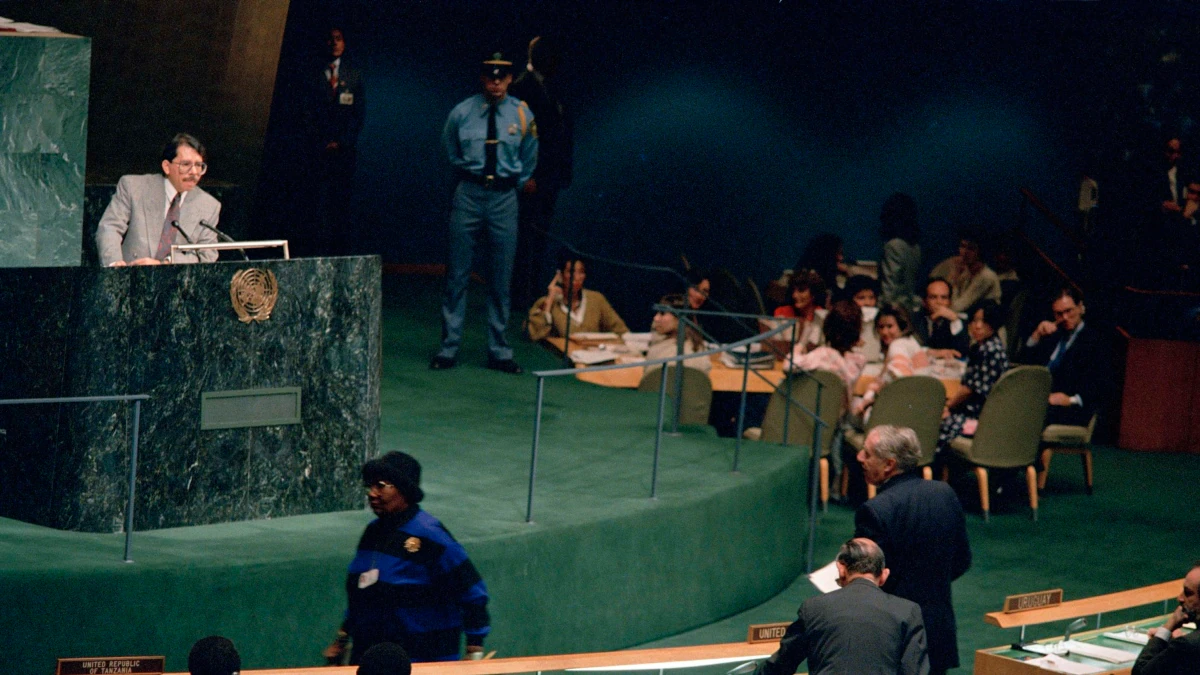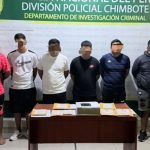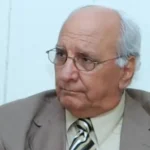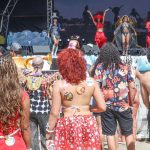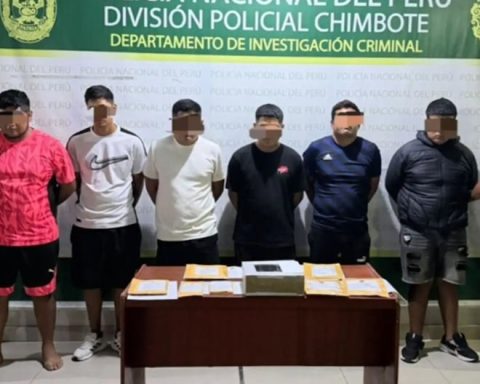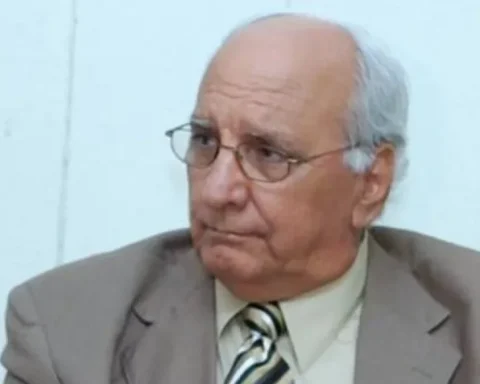The Nicaraguan president, Daniel Ortega, will once again be absent from the United Nations General Assembly as he has been doing for more than 15 consecutive years since he returned to power.
In his place, Foreign Minister Denis Moncada will speak, the president’s wife and also vice president, Rosario Murillo, reported on Thursday.
The last time Ortega spoke at a UN General Assembly was in 2007, a year after taking office, and as expected, it was a speech in which he harangued the United States. The following years he delegated the speech corresponding to Nicaragua to other representatives.
On this occasion that Foreign Minister Moncada will speak again, it is expected that the speech will be the same as years ago: Verbal attacks against Washington, especially for the sanctions imposed against the Ortega government accused of human rights violations and for undermining democracy.
In fact, Moncada advanced in an official media in Nicaragua that next Monday, which will be his intervention, “the position of the Government of President Daniel Ortega (…) will be in defense of sovereignty, defense of territorial integration, defense of dignity national, self-determination”.
But far from all this, what is the reason for the president’s increasingly common absences?
Analysts consulted by the voice of america They interpret this action as a self-isolation of Ortega, which he has taken in the face of the rejection even of the same governments that share his political ideology.
For example, the Chilean president, Gabriel Boric, a leftist like Ortega, at the end of his speech at the United Nations, called for the release of political prisoners in Nicaragua, and on another occasion he referred in particular to the detention of former Sandinista guerrilla Dora María Téllez, a key figure during the Sandinista Revolution.
“Ortega has fallen into a political orphan. He is an orphan in the entire hemisphere region. He does not find a place within this new left led by the presidents of Colombia, Mexico and Argentina; Those three countries lead it and are always willing to defend Cuba and Venezuela, but not the Ortega dictatorship,” says Arturo McFields Yescas, former Nicaraguan representative to the OAS.
For his part, the former ambassador of Costa Rica to the UN, Eduardo Ulibarri, believes that with this absence from international forums, Ortega is sending a message. On the one hand, of internal weakness, because “the dictators who feel most insecure in power are those most reluctant to leave their country for fear that this abandonment will lead to an end to the regime or its mandate.”
The Nicaraguan writer and journalist Fabián Medina in the book he wrote years ago entitled: Prisoner 198, portrays Ortega as a person who is terrified of being questioned in public, so he avoids exposing himself to a debate.
And that became visible, according to Medina, after the triumph of the Sandinista Revolution in 1979, where Ortega, along with other former guerrillas, seized power, and the current president tried “to be a normal human, go out with the family to eat and walk the streets, until a couple of public incidents convinced him of the advantages of their lockdowns.”
Apart from the personality of Ortega cited in the book, the former diplomat Ulibarri believes that the isolation of the Sandinista leader is due to the fact that he has built barriers around Nicaragua to prevent the international community from trying to influence the country through him, that is to say that be persuaded.
“Ortega has long decided to isolate himself from the world, withdraw into himself, create an insular dictatorship that not only repeatedly disrespects the rights of its own people, which is the worst, but also the basic principles of international order,” says the former Costa Rican Foreign Minister Eduardo Ulibarri.
Connect with the Voice of America! Subscribe to our channel Youtube and turn on notifications, or follow us on social media: Facebook, Twitter and Instagram
